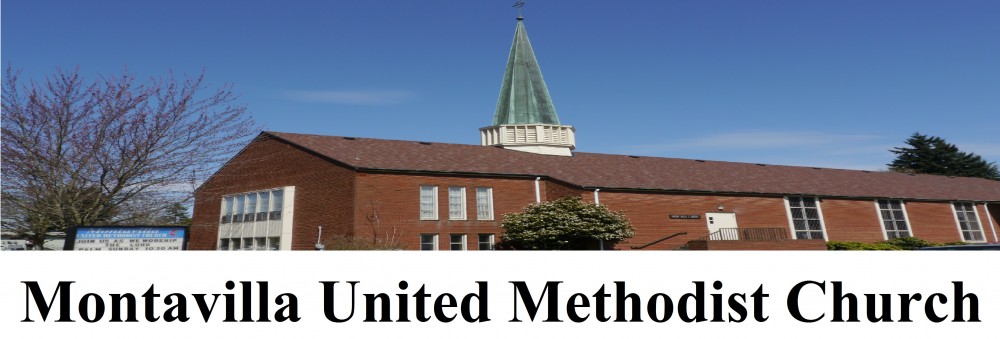James 3:2-5a; 8-18
2 We all make mistakes often, but those who don’t make mistakes with
their words have reached full maturity. Like a bridled horse, they can
control themselves entirely. 3 When we bridle horses and put bits in their
mouths to lead them wherever we want, we can control their whole bodies.
4 Consider ships: They are so large that strong winds are needed to drive
them. But pilots direct their ships wherever they want with a little rudder. 5
In the same way, even though the tongue is a small part of the body, it
boasts wildly.
8 No one can tame the tongue, though. It is a restless evil, full of deadly
poison. 9 With it we both bless the Lord and Father and curse human
beings made in God’s likeness. 10 Blessing and cursing come from the
same mouth. My brothers and sisters, it just shouldn’t be this way!
11 Both fresh water and salt water don’t come from the same spring, do
they? 12 My brothers and sisters, can a fig tree produce olives? Can a
grapevine produce figs? Of course not, and fresh water doesn’t flow from a
saltwater spring either.
13 Are any of you wise and understanding? Show that your actions are
good with a humble lifestyle that comes from wisdom. 14 However, if you
have bitter jealousy and selfish ambition in your heart, then stop bragging
and living in ways that deny the truth. 15 This is not the wisdom that comes
down from above. Instead, it is from the earth, natural and demonic. 16
Wherever there is jealousy and selfish ambition, there is disorder and
everything that is evil. 17 What of the wisdom from above? First, it is pure,
and then peaceful, gentle, obedient, filled with mercy and good actions, fair, and genuine. 18 Those who make peace sow the seeds of justice by their
peaceful acts.
Message: “James Said: Watch Your Mouth” Rev Heather Riggs
This is the third sermon in our series on my favorite book of the Bible, the
Book of James.
Last week, we explored James chapter 2, where James clarified that in
order to be doers of the word we need to make a choice:
Are we going to practice God’s Way of neighbor-love
Or
Are we going to adopt the values of the Roman Empire and put the
rich and powerful first?
Today we are delving into Chapter 3 of the book of James.
I recommend that you keep the scripture handy because we are going to reference it a lot!
James is a challenging book of the bible, for a lot of us who grew up going
to church and being taught that being a Christian means being nice to
everyone, praying the Lord’s Prayer, going to church every week and
maybe inviting some people to go to church with you.
James is challenging because, James said that it’s not enough to just
believe in God and go to church. James firmly asserts that Jesus calls us
to follow Him in the Way of neighbor-love. And neighbor-love means caring
for those in need, and “resisting evil, injustice and oppression in whatever forms they present themselves,” as we vowed to do in our baptismal vows
at the top of page 34 in the hymnal, second paragraph.
But, often when we get to chapter 3, we relax a little, because chapter 3
feels a little more like church as we’ve always known it, because James is
talking about talking. How many of you have been taught that James chapter 3 is about gossip? Yeah, me too. Part of why we have been taught that James chapter 3 is
just about gossip, is because we so often read Bible passages in isolation,
without considering what came before and what comes after.
If you read James 3 without looking at it in the context of the whole Book of
James, it’s all about watching our mouth, right?
? The person who controls their tongue makes no mistakes in verse 2
? Bridle your tongue like a horse in verse 3
? The tongue is like the rudder of a ship in verse 4
? The tongue is a fire in verse 6, (I edited verse 6 & 7 out for length.)
? The tongue is untamable, a restless evil, and a deadly poison in
verse 8
? And the tongue is two-faced – spewing both blessings and curses
from the same mouth which shouldn’t be the case because that
seems to violate the laws of nature- and here James is referencing
Jesus in Matt 7:16-17 and Luke 6:43-44, where Jesus is quoted as
saying, “no good tree bears bad fruit.” …remember in the beginning
where I mentioned that James quotes more sayings of Jesus than
any other book in the Bible besides the gospels?
If you read James chapter 3 out of context, it really does sound like we
might all be better off taking a vow of silence!
But obviously, vows of silence aren’t very practical, especially since we
have a mandate to share the teachings of Jesus with others…. so we often interpret James chapter 3 as instructions to avoid gossip, or as one of my
little office decorations says, to, “make our words gentle and sweet, for
someday we may have to eat them.”
But here’s the thing. James is pretty dang plain spoken and if he wanted to
tell us not to gossip, or to tell us that if we can’t say something nice don’t
say anything at all. James would have said that directly!
Gossip and niceness were familiar concepts in the first century — the
apostle Paul wrote about them frequently!
I think the key to understanding James chapter 3, is contained in verses
13-18.
“Are any of you wise and understanding? Show that your actions are good
with a humble lifestyle that comes from wisdom.”
Notice that James is still on the topic of showing our faith through our
actions. According to James, wisdom should be visible in how we live.
And how we live should be a “humble lifestyle.”
Showing your faith by living a humble lifestyle is very much in line with what
James was saying in chapter 2 about not being contaminated by the world.
14 However, if you have bitter jealousy and selfish ambition in your heart,
then stop bragging and living in ways that deny the truth. 15 This is not the
wisdom that comes down from above. Instead, it is from the earth, natural
and demonic. 16 Wherever there is jealousy and selfish ambition, there is
disorder and everything that is evil.
Once again, James is echoing the language of chapter two where James
was echoing Jesus’ teaching from Matthew 6:24 that we can’t serve both
God and money. We can either be ambitious and jealous for money and
power and make a mess of the church or…
We can use our mouths to teach people Jesus’ Way of neighbor-love
and organize together to practice what we preach.
James is condensing a large volume of the teachings of Jesus into a
concentrated vision of what it means to *Be the Church,* not just go to
church.
This James, whoever he was, was writing around the time when most, if
not all, of the people who had actually met Jesus were dead. So this
James, had witnessed both the growth of the church, and the problems that
come with growth.
Problems that stem from the challenge of trying to live the very counter-
cultural Way of Jesus, when we are surrounded by the “might and wealth
make right,” values of the Roman Empire.
So James reminds us that we need to focus on God’s wisdom.
17 What of the wisdom from above? First, it is pure, and then peaceful,
gentle, obedient, filled with mercy and good actions, fair, and genuine. 18
Those who make peace sow the seeds of justice by their peaceful acts.
Notice that James is talking about the kind of peace that sows the seeds of
justice.
? Gentleness leads us to listening instead of judging people in need
? Mercy leads us to put others needs before our wants
? Good actions improve the lives of the most vulnerable
? Fairness is the opposite of favoritism that so often favors the rich
? Obedience to the teachings of Jesus, calls us to question whether we
are trying to take a seat at a table that Jesus would have flipped, like
he flipped the tables of the money changers at the Temple.
So, James chapter 3 isn’t about gossip, or being nice with our words. It’s
about making our words obedient to the Way of Jesus. Using our words, to teach people the Way of Jesus, which is the practice of neighbor-love, and to organize together to be doers of the Way, not just hearers of the way.

